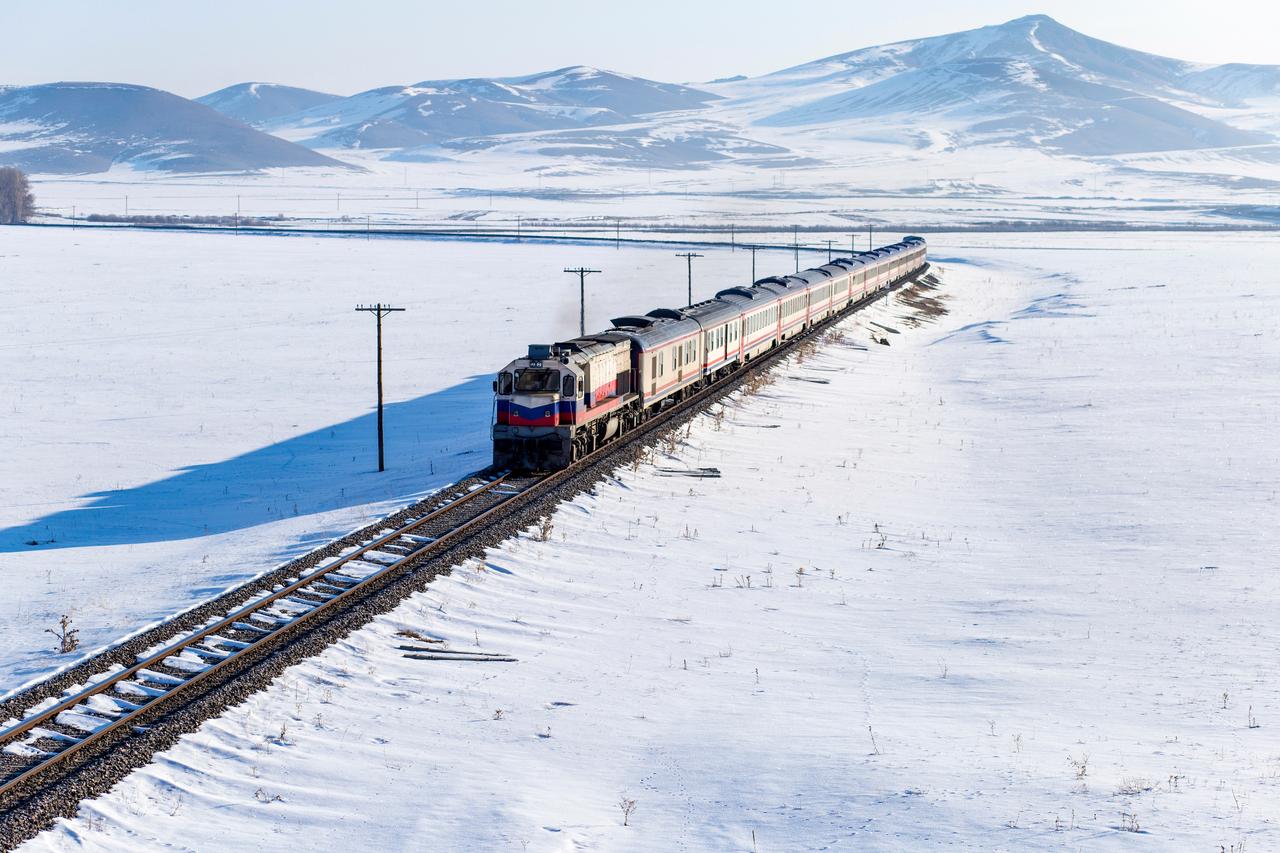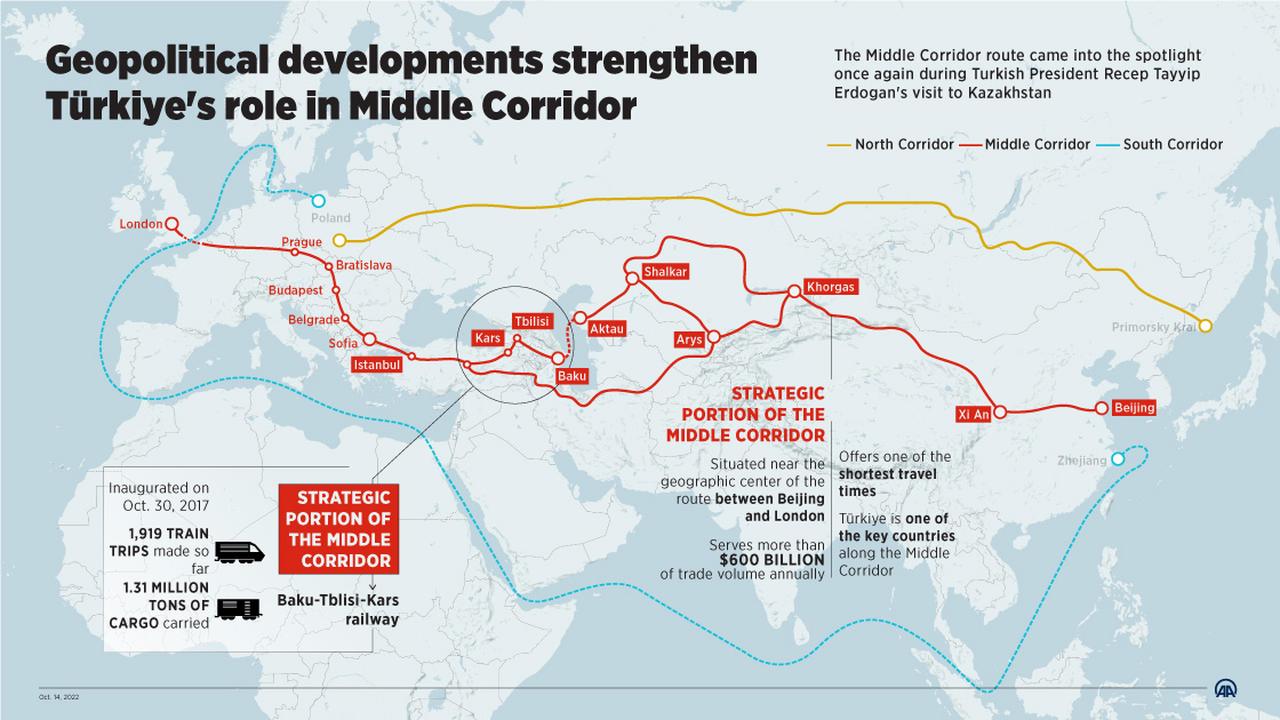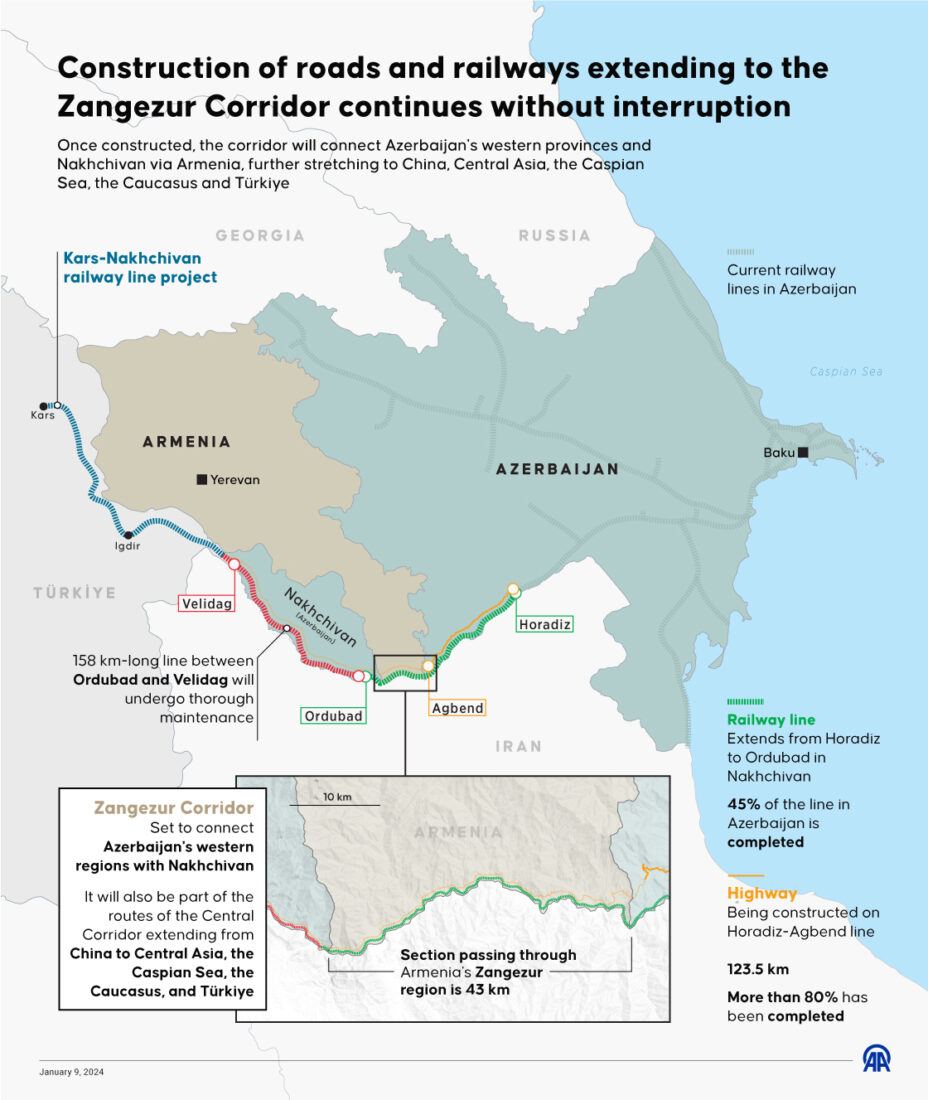
Türkiye will begin construction Friday of a new railway line that forms a critical segment of the Zangezur Corridor, a transport route intended to link Türkiye with Azerbaijan through the Nakhchivan exclave, Transport and Infrastructure Minister Abdulkadir Uraloglu said Wednesday.
The project involves the Kars–Igdir–Aralik–Dilucu Railway Line, which will span 224 kilometers (139.18 miles) in Türkiye’s east. Once operational, the line is expected to carry 5.5 million passengers and 15 million tons of freight annually.
The railway will be built as a double-track line equipped with electrification and signaling systems.
The construction will include five tunnels, 19 cut-and-cover tunnels, three viaducts, 10 bridges, 144 underpasses, 27 overpasses, and 480 culverts, underscoring its scale and engineering complexity.
The Treasury and Finance Ministry secured €2.4 billion ($2.8 billion) in external financing for the project, Uraloglu added, emphasizing the significance of the project for international trade routes.

The line will provide a new direct rail connection between Türkiye and Azerbaijan, Uraloglu highlighted. He added that the project would also speed up access from eastern and southeastern Türkiye to global markets and contribute to tourism.
"The production potential of eastern and southeastern Anatolia will reach foreign markets more quickly, and the Mediterranean’s tourism potential will increase," Uraloglu explained.
"This line will strengthen the Trans-Caspian and North–South corridors, reinforce Eurasia’s supply and logistics networks, and place Türkiye at the center of regional cooperation."

Once fully functional, the Zangezur Corridor will become part of the Middle Corridor, a transport route connecting Asia and Europe via Central Asia, the Caspian Sea, and Türkiye. Uraloglu stated that the corridor will allow freight and passengers to move more efficiently from Beijing to London, reinforcing Türkiye’s position as a hub for regional cooperation.
After a joint declaration for a permanent peace signed in the White House between Armenia and Azerbaijan to end the 37-year-long Karabakh conflict, the Middle Corridor's strategic role in the future of global trade came into focus as both countries also agreed on the development and stability of the Zangezur corridor, seemingly the most critical part of the route.
Under the deal, the United States received a 99-year mandate to develop the Zangezur Corridor, referred to by Washington as the Trump Route for International Peace and Prosperity (TRIPP), to link Nakhchivan with mainland Azerbaijan via Armenia without checkpoints.
With regional disputes easing, development of the corridor has advanced, paving the way for new investments in Central Asia’s energy sector. Among them, Ihlas Holding’s $6 billion hydroelectric projects in Kyrgyzstan stand out as a major step toward meeting the region’s energy demand.